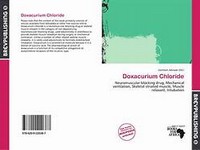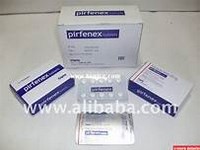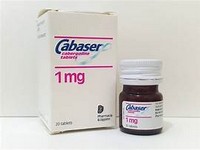Atracurium besilate

Atracurium besilate
CLINICAL USE
Non-depolarising muscle relaxant of short to medium duration
DOSE IN NORMAL RENAL FUNCTION
Initially: 300–600 mcg/kg, depending on duration of full block requiredMaintenance: 100–200 mcg/kg as required or IV infusion
: 300–600 mcg/kg/hourIntensive care: Initially, 300–600 mcg/kg then by infusion: 4.5–29.5 mcg/kg/minute (usual dose: 11–13 mcg/kg/minute) PHARMACOKINETICS
Molecular weight :1243.5 %Protein binding :82 %Excreted unchanged in urine : 0 Volume of distribution (L/kg) :0.16half-life – normal/ESRD (hrs) :Approx 20 minutes/unchanged DOSE IN RENAL IMPAIRMENT
GFR (mL/MIN)
20 to 50 : Dose as in normal renal function 10 to 20 : Dose as in normal renal function <10 : Dose as in normal renal function DOSE IN PATIENTS UNDERGOING RENAL REPLACEMENT THERAPIES
CAPD :Unlikely to be dialysed. Dose as in normal renal function HD :Unlikely to be dialysed. Dose as in normal renal functionHDF/high flux :Unknown dialysability. Dose as in normal renal functionCAV/VVHD :Unlikely to be dialysed. Dose as in normal renal function IMPORTANT DRUG INTERACTIONS
Potentially hazardous interactions with other drugsAnaesthetics: enhanced effect with volatile liquid general anaestheticsAnti-arrhythmics: procainamide enhances muscle relaxant effectAntibacterials: aminoglycosides, clindamycin, polymyxin, piperacillin enhance effect of atracuriumAtracurium enhances the neuromuscular block produced by botulinum toxin (risk of toxicity) ADMINISTRATION
Reconstition
– Route
IV bolus, IV infusion Rate of Administration IV infusion : Initial bolus dose of 0.3–0.6 mg/kg over 60 seconds, then administer as a continuous infusion at rates of 0.3–0.6 mg/kg/hourComments
Stable in sodium chloride 0.9% for 24 hours, and glucose 5% for 8 hours when diluted to concentrations of 0.5 mg/mL or above
See how to identify renal failure stages according to GFR calculation
See how to diagnose irreversible renal disease
Home









